No primate blood for oil!
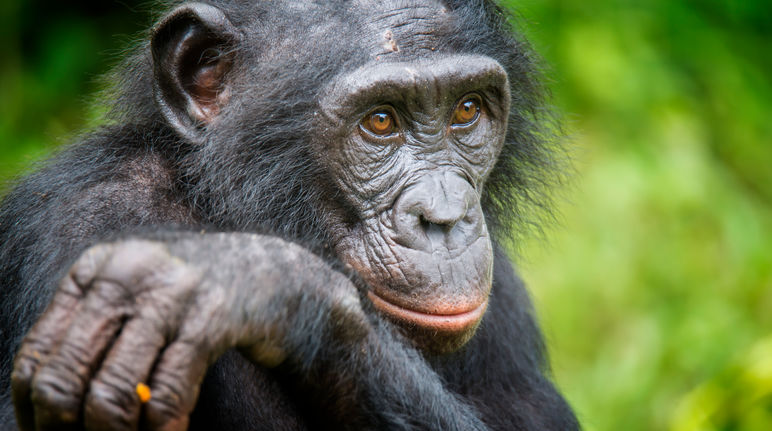 Bonobos are smaller than chimpanzees. (© Guenter Guni/iStock)
Bonobos are smaller than chimpanzees. (© Guenter Guni/iStock)
Some of the last mountain gorillas roam the forests of Virunga National Park. The Congolese government, however, is less interested in this priceless treasure than in the dollar value of the oil under the protected area – and it now wants to allow drilling in Virunga. Please sign our petition and tell them NO!
News and updates Call to actionTo: the President of the Democratic Republic of the Congo, Felix Tshisekedi, and Prime Minister Jean-Michel Sama Lukonde Kyenge
“Virunga National Park is crucial for the survival of gorillas and chimpanzees. Do not sacrifice them to business interests.”
For wildlife lovers, the name Virunga has a magical ring. The national park in the Democratic Republic of Congo is a refuge for some of the planet’s last mountain gorillas, guarded by rangers who risk their lives to protect the great apes.
It’s not surprising that UNESCO declared the Virunga a World Heritage Site in 1979.
Now, the government wants to delist parts of the park. The government feels that it has a right to exploit mineral wealth anywhere within its borders – and it is not about to let a World Heritage Site or two stand in its way. If the plan is realized, it would make a mockery of the whole concept of protected areas.
The controversy centers around drilling for oil. The threat to the environment that this would entail is alarming. Exploring and drilling would:
– destroy the habitat of chimpanzees and gorillas, as well as many other species
– trash forests that are crucial to protecting our climate
– endanger the habitat of migratory birds
– pollute the Congo and Nile river systems
In May, a total of 19 environmental organizations from the province of North Kivu published an open letter to warn of the impact of shrinking the national park. They now want to mobilize the people of the region to step up the pressure on the government in Kinshasa.
The Congolese activists have asked us to launch a parallel, worldwide campaign to protect Virunga.
Please sign our petition – gorillas and bonobos need your voice.
Update: Originally, Salonga National Park was threatened with the same fate as Virunga. Although the government has now pledged to preserve the area, our campaign continues until Virunga is also protected.
BackgroundThis petition originally referred to the Salonga and Virunga national parks. Following assurances that oil drilling will not take place in Salonga, our focus is now on Virunga. However, we will continue to provide information on Salonga and the bonobos living there.
Virunga and Salonga National Parks
Virunga National Park is located in eastern Congo. At 7,900 square kilometers, it is about five times the area of London. Around one quarter of all critically endangered mountain gorillas (Gorilla beringei beringei) live in the park near the border to Rwanda.
Salonga National Park is one of the largest rainforest reserves in the world and covers 36,000 square kilometers in the heart of the Congo Basin – an area nearly the size of Switzerland. The park can only be reached via rivers. It is home to around 40 percent of the world’s bonobo population, as well as forest elephants, pangolins, 129 species of fish and 223 species of birds.
Due to threats such as poaching and civil wars, both national parks are on the UNESCO list of World Heritage in Danger: Virunga since 1994, Salonga since 1999.
Downgrading of protected areas
The Congolese government plans to strip a total of 21.5 percent of Virunga National Park of its protected status: 400 square kilometers in concession block 5 and 1,320 square kilometers in block 4.
In Salonga, 2,767 square kilometers would have been affected (blocks 1 and 2). According to Bloomberg, the area impacted could have been up to 15,000 square kilometers, or around 40 percent of the national park. The state oil company, Sonahydroc, and Compagnie Miniere Congolaise SPRL (COMICO) intended to explore for oil there.
Reducing the size of protected areas to benefit business interests is a worldwide problem, particularly in the United States, Brazil, Cambodia and Tanzania. Experts refer to it as “Protected area downgrading, downsizing and degazettement” (PADDD). This exposes areas already affected by illegal threats such as poaching and logging to additional quasi-legal dangers with the government's approval. The most widespread of these is the awarding of mining and oil concessions.
COMICO, an opaque oil company
The NGO Global Witness took a closer look at COMICO, an oil company whose concession overlaps with Salonga National Park. Despite persistent research, it was not able to identify who is actually behind the company. It is striking that four offshore companies became stakeholders in COMICO about the time the oil concession was approved. Today, 60 percent of the shares belong to unknown holders. The contracts with COMICO were not published within 60 days as required by law, making corruption and illegal financial transactions appear likely.
Global Witness saw a connection between the opaque deal and the presidential election in December 2018. The organization expressed concern that then-President Joseph Kabila might not be prepared to leave office after two electoral terms as required by the constitution, and may be looking to fill his “war chest” or enrich himself personally with the oil business.
Following the election of Felix Tshisekedi as the new President, Global Witness issued an updated assessment of the deal, questioning its legality.
International pressure is effective
International pressure works, as the case of SOCO has shown: In 2014, the British company dropped its plans to explore for oil at Lake Edward in Virunga National Park after public resistance became too great. Allegations of corruption are likely to have played a role as well.
Bonobos – little-known primates
All four anthropoid ape species are currently endangered: Orangutans are facing extinction in Southeast Asia, while chimpanzees, gorillas and bonobos are being pushed to the brink in Africa. In many regions, apes have little chance of survival outside of extensive protected areas.
Bonobos are the least known ape species. A total of around 15,000 of them can be found only south of the Congo river in the Democratic Republic of Congo. Their habitat thus does not overlap with that of the chimpanzees, who live north of the mighty river.
One particular bonobo behavior is often highlighted: the animals resolve conflicts with free sex. If two unknown bonobo groups meet, females sometimes approach each other and rub their genitals together in missionary position. Males play with the juveniles of the other group. Bonobo families are led by a matriarch. Bonobos thus exhibit a completely different behavior than chimpanzees, where alpha males rule, sexualized violence is widespread and clashes between two groups can in some cases turn deadly. While the bonobos get along with peaceful behavior and diplomacy, chimpanzees rely on aggression.
To: the President of the Democratic Republic of the Congo, Felix Tshisekedi, and Prime Minister Jean-Michel Sama Lukonde Kyenge
Dear Mr. President,
Dear Mr. Prime Minister,
The Democratic Republic of the Congo is home to two UNESCO World Heritage Sites that are crucial to the survival of great apes: some of the last mountain gorillas live in Virunga National Park, while Salonga National Park is the habitat of a major population of endangered bonobos, a species that is found in no other country.
You therefore have a special responsibility for the protection of these primates.
Your government is nevertheless planning to authorize oil exploration and drilling in the UNESCO World Heritage Sites and is seeking to reduce the size of the protected areas.
This would have a profound ecological impact. Opening Virunga and Salonga National Parks to oil exploration would:
– destroy the habitat of bonobos, gorillas and many other species
– result in the clearing of forests that are crucial to protecting our climate
– endanger the habitat of migratory birds
– risk polluting the Nile and Congo river systems
Your country has pledged to protect the UNESCO World Heritage Sites. We ask that you continue to honor this commitment, as you have done in the past. The efforts of your government and the people of the Democratic Republic of the Congo to protect nature is crucial to the survival of gorillas and bonobos.
Please ensure that the UNESCO World Heritage Sites are not violated in favor of business interests.
Yours faithfully,
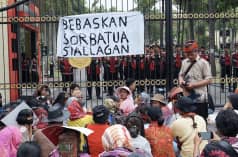
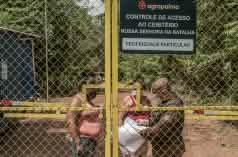
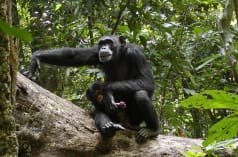








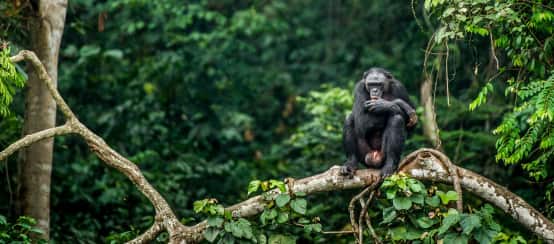
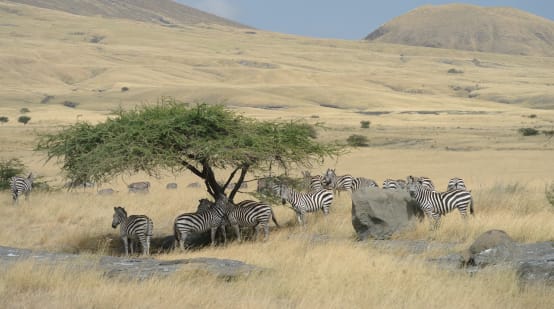
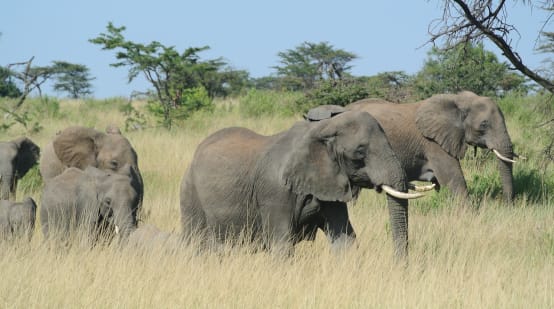
 Recent successes
Recent successes